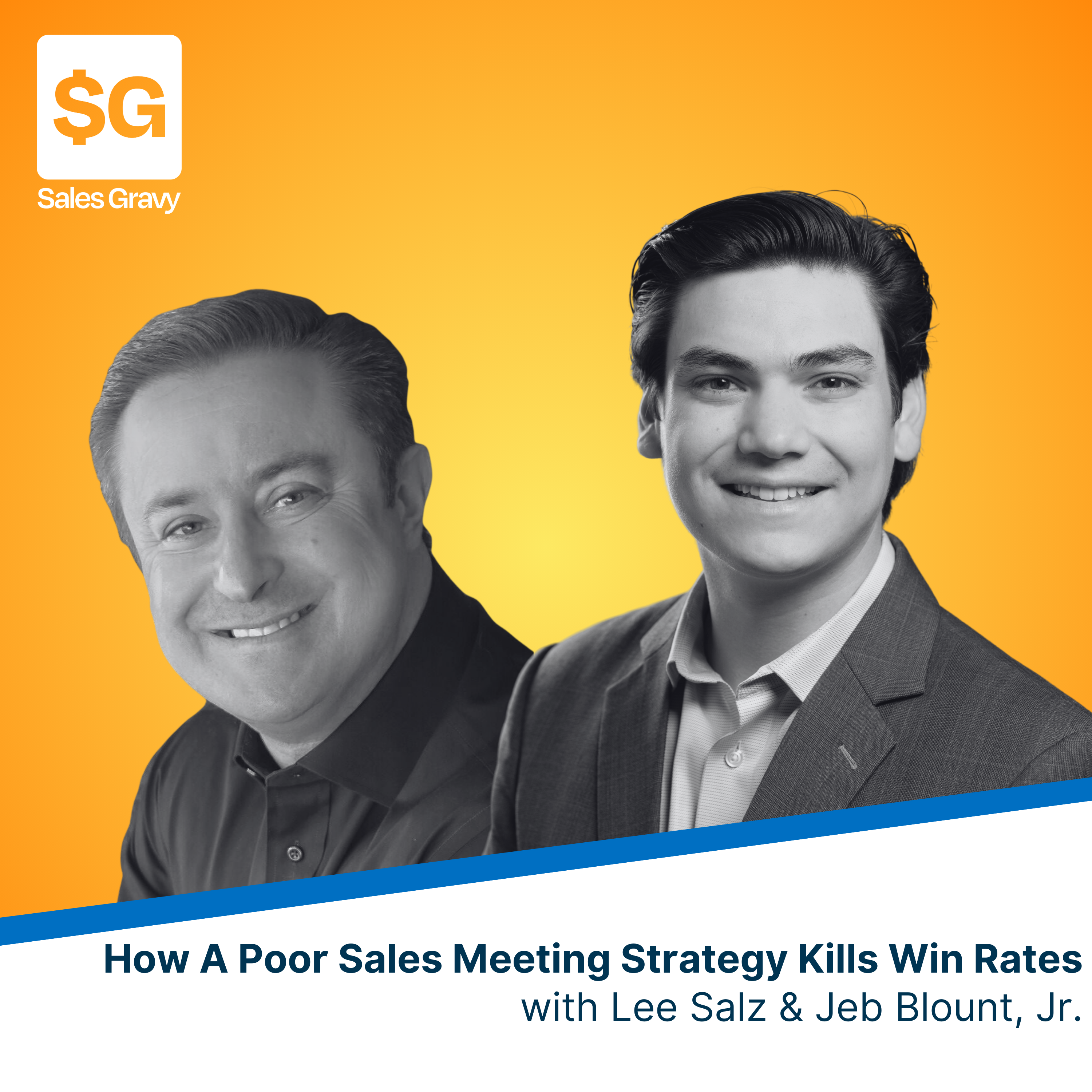Podcast Episode Details
Back to Podcast Episodes
How a Poor Sales Meeting Strategy Kills Win Rates
Most salespeople lose a sales meeting before they ever open their mouth. They show up with decks of slides, lists of discovery questions, or AI-generated talking points, thinking preparation is about having more material. But while they’re busy organizing, their prospects are mentally checking out—and the meeting hasn’t even started. Lee Salz, bestselling author and founder of Sales Architects, has observed this pattern for decades. "If you want to win more deals at the prices you want, you need a better first meeting strategy. Everyone says I want to win more deals, so they focus on closing at the end. But that's not where the opportunities are. The opportunities to win more deals start in that first meeting." The Sales Meeting Problem Hiding in Plain Sight Ask any salesperson: "If a prospect agrees to meet with you, what do they get out of it?" The response is usually stunned silence. That silence reveals the problem. Too many sales professionals approach the first sales meeting with an extraction mindset, focused on what they can learn instead of what they can give. Think about how you prepare. Do you make a list of questions to gather information? Do you pull together slides about your company, products, and clients? That might feel productive, but here’s what it communicates: This meeting is about me. When prospects can’t see immediate value in the conversation, they resist. They may decline the meeting altogether, or worse—they show up already skeptical, arms crossed, counting down the minutes until they can escape. Why Traditional Discovery Is Failing You Sales training has conditioned reps to believe that discovery meetings are the foundation of the sales process. In theory, this makes sense: You need information to qualify opportunities. But here’s the problem—buyers don’t experience value when they educate you. They already have suppliers, vendors, and service providers. Another salesperson asking them to “tell me about your challenges” just feels like more work. Worse, traditional discovery feels like an interrogation. You’re pulling data without leaving anything behind. And prospects are savvy enough to sense when you’re there to take rather than give. The Emotion Gap in Every Sales Meeting You already know people buy on emotion and justify with logic. You’ve heard it in every sales book, every training, every keynote. Walk into the average first meeting, and you’ll see the same setup: a rep armed with facts, features, processes, and pricing structures. All logic, zero emotion. The result? Buyers nod politely, take notes, and then ghost you. Not because your product isn’t good enough, but because you failed to make them feel anything. Your competitors who are consistently winning aren’t necessarily better at selling features. They’re better at weaving emotional connection into the very fabric of their meetings. They create trust, credibility, and resonance in the first 15 minutes. The Three Non-Negotiables of Every Winning Sales Meeting High-performing sales professionals understand that every first meeting must accomplish three core objectives: Meaningful Qualification: Determine whether this opportunity aligns with your ideal customer profile while also helping prospects better understand their situation. Clear Differentiation: Prospects need to understand what makes your approach unique, but not through feature comparisons. Real differentiation comes from your methodology, philosophy, and approach. Show them how you think about solving problems, not just what you sell. Emotional Foundation: Establish the connection that energizes deals. This involves demonstrating genuine interest in their success while positioning yourself as a trusted advisor rather than just another vendor. How to Prepare for Sales Meeting Success The outcome of the meeting is decided long before you show up. Top performers treat preparation like a competitive advantage.
Published on 3 days, 9 hours ago